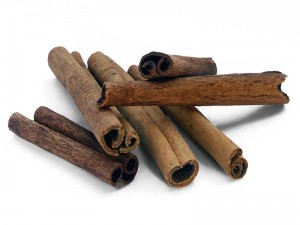
More evidence that low-calorie sweeteners are bad for your health
Studies show that artificial sweeteners can raise the risk of hypertension, metabolic syndrome, type 2 diabetes and heart disease, including stroke.

Natural Health News — One of the oldest known spices may be able to help control one of the most modern diseases.
Cinnamon was mentioned in the Bible and was used in ancient Egypt not only as a beverage flavouring and medicine, but also as an embalming agent. You can also find it mentioned in one of the earliest books on Chinese botanical medicine, dated around ,2700 BC.
Its popularity has continued throughout history. Now a flurry of recent clinical studies proving its benefit in blood sugar control has spurred a tremendous resurgence in cinnamon’s popularity.
In a recent meta-analysis conducted by researchers from the University of West London, investigators examined the impact of cinnamon on blood sugar control only in patients with type 2 diabetes. The researchers examined six randomised controlled trials with a total of 435 patients and concluded that cinnamon helped control blood sugar levels.
The doses range from 1 g to 6 g per day up to 4 months. The researchers concluded “Use of cinnamon showed a beneficial effect of glycaemic control (both HbA1c and FPG) and the short term (4 months) effects of the use of cinnamon on glycaemic control looks promising.”
Although not all studies show positive effects, other recent studies in patients with type 2 diabetes are showing promising results. In experimental models and animal studies, researchers have shown that antioxidant polyphenols found in cinnamon possess insulin-like properties and stimulate glucose uptake in skeletal muscle and other body tissues.
More evidence surfaces
Two comprehensive reviews of cinnamon’s role in blood sugar control in type 2 diabetes are worth mentioning.
Earlier this year another double-blind study was just published in the June 2012 online issue of Nutrition Research. In this study, a water-soluble cinnamon extract was used. Sixty-six patients with type 2 diabetes were assigned to one of three groups: placebo, 120 mg of cinnamon supplement daily, or 360 mg daily for three months. All the participants were also taking the antidiabetic drug gliclazide.
Results demonstrated that after three months, fasting blood glucose levels were significantly lower in patients who took cinnamon: an average reduction of 18 mg/dl in the low-dose group and 29 mg/dl in the high-dose group. No change was observed in the placebo group.
In addition, triglyceride(blood fat) levels also were significantly reduced in the low-dose group by an average of 68 mg/dl, but only slightly lower in the high-dose group. This is not an uncommon phenomenon in herbal remedies – demonstrating that more is not always better.
The cinnamon extract used in the study came in 60 mg tablets derived from 2.4 grams of crude cinnamon. Hence, the dosages of the water-soluble extract were equivalent to 4.8 and 14.4 grams of cinnamon.
Another published in the Journal of Medicinal Food in September 2011, was conducted by researchers from the University of California-Davis and analysed eight clinical studies investigating the impact of whole cinnamon and cinnamon extract on people with type 2 diabetes or prediabetes. The authors reported that both types of cinnamon resulted in a statistically significant decline in fasting blood glucose.
Cinnamon is, of course not a magic bullet for glycaemic control for glucose control, but on the basis of these studies it appears to be a useful part of the portfolio of helpful therapies.

Please subscribe me to your newsletter mailing list. I have read the
privacy statement